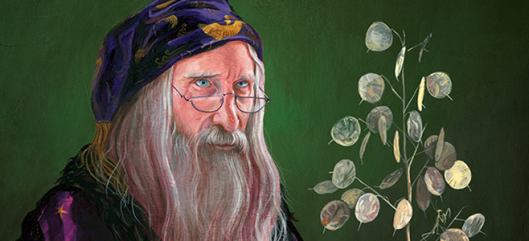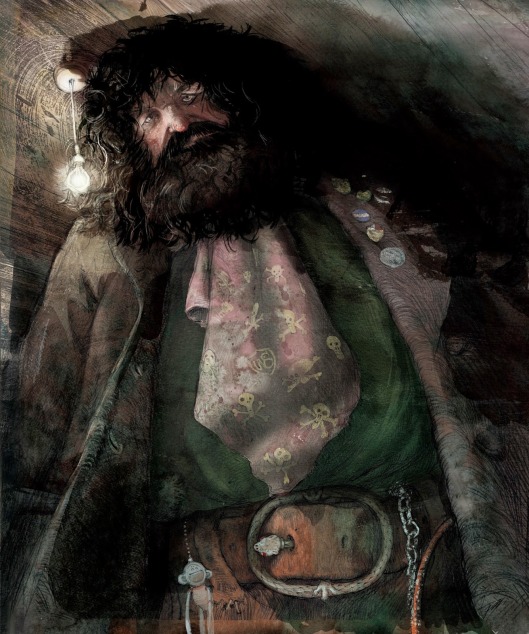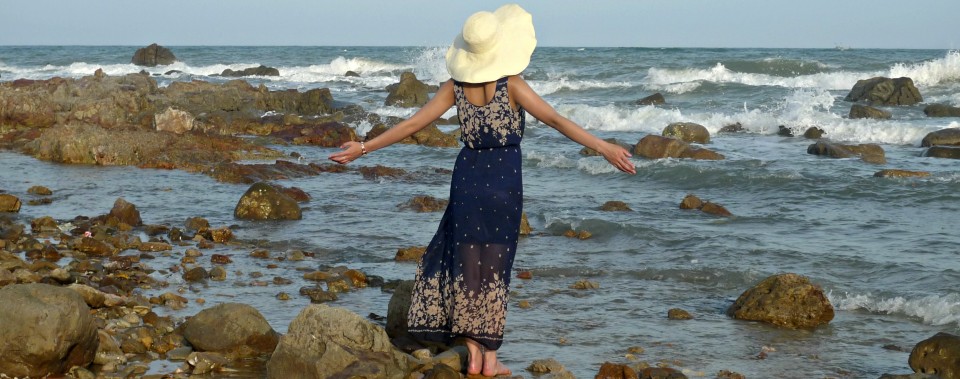As a children’s story, a very valuable part of the Harry Potter series is its humour and lightheartedness. In both the books and films, these moments are conveyed through fun characters like Peeves, Fred, and George, as well as through the everyday moments of life at Hogwarts, which are always full of excitement. For example, one of my favourite lines in the series is “just then Neville caused a slight diversion by turning into a large canary,” which really sums up how many great, hilarious details make up the atmosphere of this universe. That being said, there are also many darker, more meaningful moments that are quite under-appreciated.
Often, when people think of the Harry Potter stories, they think of a creative but morally simplistic story, while forgetting the complexities and the very mature points that the series also raises. A principal reason for this is the movie’s portrayal of the story: the films often omit or underplay very powerful scenes. Some scenes, I believe, were done very well — the Mirror of Erised, the Resurrection Stone in the forest, the lake of Inferi. Other aspects, however, were simplified for length or clarity, which really took away from the depth of the stories.
While much more can be said about how many characters and moments are ruined due to the films’s portrayal (or lack thereof) — Ginny Weasley, St. Mungo’s Hospital, S.P.E.W. — these moments below are the ones that stood out to me most when reading, and really drove home how mature a story this series is.

The Mirror of Erised, by Jim Kay
1. Harry in Dumbledore’s office after Sirius’s death
“Harry, suffering like this proves you are still a man! This pain is part of being human —”
“THEN — I — DON’T — WANT — TO — BE — HUMAN!” Harry roared, and he seized one of the delicate silver instruments from the spindle-legged table beside him and flung it across the room. It shattered into a hundred tiny pieces against the wall. Several of the pictures let out yells of anger and fright, and the portrait of Armando Dippet said, “Really!”
“I DON’T CARE!” Harry yelled at them, snatching up a lunascope and throwing it into the fireplace. “I’VE HAD ENOUGH, I’VE SEEN ENOUGH, I WANT OUT, I WANT IT TO END, I DON’T CARE ANYMORE —”
This is one of the most powerful scenes in the series, and one of the only times we see Harry totally collapse under all the grief and pressure he has had to face. The emotions are so raw and believable — frankly, I’m surprised he doesn’t lose it more often — and it really shows how all-consuming pain can feel, especially for such a young person.
2. Mrs. Weasley’s hug following Cedric Diggory’s death
Mrs. Weasley set the potion down on the bedside cabinet, bent down, and put her arms around Harry. He had no memory of ever being hugged like this, as though by a mother. The full weight of everything he had seen that night seemed to fall in upon him as Mrs. Weasley held him to her.
Not only does this moment emphasize how much Harry has gone through, but it also shows the strength of a mother’s love. This is obviously an important theme in the books — Harry survives as a baby because of Lily’s sacrifice, and then again at the end because of Narcissa’s love for her son, Draco. This simple scene adds to those big moments and acts as reminder of how meaningful and powerful a parent’s presence can be.
3. The Complexity of Aunt Petunia
Dudley’s heartwarming transformation in Deathly Hallows is widely talked about, but Petunia is a far more interesting character in my opinion, whom almost no one ever talks about. Throughout the series, we grow to realize that she is far more than just a mean, prissy aunt:
“Back?” whispered Aunt Petunia.
She was looking at Harry as she had never looked at him before. And all of a sudden, for the very first time in his life, Harry fully appreciated that Aunt Petunia was his mother’s sister. He could not have said why this hit him so very powerfully at this moment. All he knew was that he was not the only person in the room who had an inkling of what Lord Voldemort being back might mean. Aunt Petunia had never in her life looked at him like that before. Her large, pale eyes (so unlike her sister’s) were not narrowed in dislike or anger, they were wide and fearful. The furious pretence that Aunt Petunia had maintained all Harry’s life – that there was no magic and no world other than the world she inhabited with Uncle Vernon – seemed to have fallen away.
We also learn that the root of Petunia’s hatred towards Harry and Lily, which is never explained in the movies, is simply jealousy. As a child, she wanted so badly to be part of the magical world that she actually wrote Albus Dumbledore a letter asking to be admitted to Hogwarts. Even as an adult, she still remembers every detail of the magical world:
“And what the ruddy hell are Dementors?”
“They guard the wizard prison, Azkaban,” said Aunt Petunia.
Two seconds of ringing silence followed these words before Aunt Petunia clapped her hand over her mouth as though she had let slip a disgusting swear word. Uncle Vernon was goggling at her. Harry’s brain reeled.
Because she was unable to be a part of something she so longed to, Petunia dealt with it by denying the existence of the magical world altogether. Harry and Lily were constant reminders of what she couldn’t have, but could never fully stopped wanting.
4. Dumbledore’s Past

Albus Dumbledore, by Jim Kay
“I was gifted, I was brilliant. I wanted to escape. I wanted to shine. I wanted glory.”
“Do not misunderstand me,” he said, and pain crossed the face so that he looked ancient again. “I loved them, I loved my parents, I loved my brother and my sister, but I was selfish, Harry, more selfish than you, who are a remarkably selfless person, could possibly imagine.” . . .
“And then… you know what happened. Reality returned in the form of my rough, unlettered, and infinitely more admirable brother. I did not want to hear the truths he shouted at me. I did not want to hear that I could not set forth and seek Hallows with a fragile and unstable sister in tow.”
“The argument became a fight. Grindelwald lost control. That which I had always sensed in him, though I pretended not to, now sprang into terrible being. And Ariana… after all my mother’s care and caution… lay dead upon the floor.”
Dumbledore gave a little gasp and began to cry in earnest.
One of the reasons I love this series so much is because none of the characters are flat. They all have realistic motives and complex sides. Dumbledore is the moral compass of the story — the old, wise mentor and champion for human rights. But his backstory, revealed in Deathly Hallows, actually explains every detail of how he came to be this seemingly holistic wizard we thought we knew — it’s explained why he has learned to not trust himself with power, how his nose came to be broken, and what his deepest desire has been for over 130 years of his life.
Another reason why this scene is so meaningful is because it shows us how vulnerable such a prodigious and powerful character really is. Even the strongest people live with terrible guilt, shame, and grief that will bring them to their knees in tears. It is so rare that we see these moments in popular books and films though — particularly involving a respectable grown man — which makes it all the more special.
5. The Everyday Struggle of Half-Breeds

Hagrid, by Jim Kay
This series is steeped in messages of anti-discrimination — against muggles, muggle-borns, half-breeds, werewolves, house-elves, and more. While these prejudices are apparent during Voldemort’s regime in Deathly Hallows, it’s not often that smaller instances of intolerance throughout the series are discussed.
In both the wizarding world and the muggle world, everyday examples of bigotry continually make it very difficult for certain people to get a job, find a home, have children, or even face society without shame. In Harry Potter, two important characters act as examples of how their stigmatized identities have horribly affected their lives: Hagrid, a half-giant, and Remus Lupin, a werewolf:
“Don’t you understand what I’ve done to my wife and my unborn child? I should never have married her, I’ve made her an outcast!”
Lupin kicked aside the chair he had overturned.
“You have only ever seen me amongst the Order, or under Dumbledore’s protection at Hogwarts! You don’t know how most of the Wizarding world sees creatures like me! When they know of my affliction, they can barely talk to me! Don’t you see what I’ve done? Even her own family is disgusted by our marriage, what parents want their only daughter to marry a werewolf?
Lupin lives his entire life in poverty; it is mentioned several times that he is unable to secure a job. Hagrid too faces extreme discrimination from parents and students alike when journalist Rita Skeeter broadcasts his half-giant status. This comes in the form of people talking to him slowly, as though he is dumb, and attributing his interest in magical creatures to his “naturally vicious” instincts — subtle but powerful examples of prejudice that too many people can relate to.
6. Kreacher’s Transformation & The Treatment of House-Elves
Dobby gets all of the elf love in the series, but we actually do meet three other house-elves as well: Hokey, Winky, and Kreacher. In all of these cases, the elves are taken advantage of by wizards and even killed. Hermione is the only person who attempts to speak up for house-elf rights, but their state of enslavement is so normalized, and even internalized by the elves themselves, that no one even bats an eye.
In addition to raising important ethical questions, the inclusion of the house-elves presents a very clear message: you reap what you sow. Legalities and ethics aside, if you are kind to someone, then you will receive kindness in return. Sirius met his death in large part due to his treatment of Kreacher, and Harry’s life was saved multiple times because of his kindness towards Dobby. When Harry, Ron, and Hermione begin to show kindness to Kreacher, the change in his attitude is immediate, and he even rallies the Hogwarts elves to fight alongside Harry in the final battle:
The house-elves of Hogwarts swarmed into the entrance hall, screaming and waving carving knives and cleavers, and at their head, the locker of Regulus Black bouncing on his chest, was Kreacher, his bullfrog’s voice audible even above this din: “Fight! Fight! Fight for my Master, defender of house-elves! Fight the Dark Lord, in the name of brave Regulus! Fight!”

7. Harry and Nearly Headless Nick’s Conversation About Ghosts after Sirius’s Death
Nick turned away from the window and looked mournfully at Harry.
“He won’t come back.”
“Who?”
“Sirius Black,” said Nick.
“But you did!” said Harry angrily. “You came back — you’re dead and you didn’t disappear – ”
“Wizards can leave an imprint of themselves upon the earth, to walk palely where their living selves once trod,” said Nick miserably. “But very few wizards choose that path.”
“Why not?” said Harry. . . .
“He will not come back,” repeated Nick quietly. “He will have… gone on.”
This conversation is little longer than the excerpt included here and it is a really meaningful scene for two reasons. Firstly, Harry’s desperate struggle to find a way to talk to Sirius after his death is one of the most heartbreaking parts of the series. It’s a very real reaction to loss. When Nick shuts down the possibility of Sirius’s coming back as a ghost, Harry feels as though he’s lost his godfather all over again.
Also, this is one of the only scenes in which the afterlife is discussed in Harry Potter, which raises some interesting questions about life, death, and our choices.
